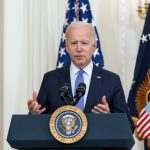Elon Musk’s appointment as head of the Department of Government Efficiency (DOGE) under President Donald Trump has sparked a transformative, albeit controversial, shake-up of federal agencies. Musk’s mission to streamline government operations and eliminate inefficiencies has drawn both praise and criticism, with the U.S. Agency for International Development (USAID) becoming a focal point of his reforms. The abrupt suspension of USAID’s foreign aid programs, part of a broader 90-day review ordered by Trump, has triggered a humanitarian crisis, particularly along the Thai-Myanmar border, where thousands of refugees have been left without critical medical care.
The freeze on USAID funding has already had tragic consequences. A 71-year-old Burmese refugee, Pe Kha Lau, dependent on oxygen support, died after being discharged from an IRC-run clinic that was forced to close due to the funding halt. Her death underscores the human cost of bureaucratic overhauls that prioritize rapid cost-cutting over strategic planning. Critics argue that Musk’s aggressive approach—described as “move fast and break things”—has created chaos in vulnerable regions reliant on U.S. aid, leaving local authorities scrambling to fill the void.
From a conservative perspective, however, Musk’s efforts reflect a long-overdue attempt to address waste and inefficiency in federal spending. USAID has long been criticized for its bloated budget and lack of accountability, with reports suggesting that only a fraction of its funding reaches its intended recipients. Musk’s characterization of the agency as a “criminal organization” resonates with many conservatives who view foreign aid as an area ripe for reform. By consolidating USAID functions under the State Department and reassessing priorities, Musk aims to align U.S. aid with national interests while reducing unnecessary expenditures.
Despite these intentions, the execution has raised significant concerns. Critics from both sides of the aisle question whether Musk’s sweeping authority as an unelected official is undermining democratic accountability. His rhetoric and actions have sparked legal challenges and fears of overreach, with Senate Minority Leader Chuck Schumer describing DOGE’s initiatives as a “hostile takeover” of federal governance. Nonetheless, Musk remains undeterred, arguing that his reforms are essential for preserving America’s fiscal solvency and restoring public trust in government institutions.
The debate over USAID’s future epitomizes broader tensions between reform and humanitarian responsibility. While conservatives champion Musk’s push for efficiency as a necessary step toward reducing government waste, the immediate fallout—exemplified by Pe Kha Lau’s death—highlights the risks of prioritizing cost-cutting over careful deliberation. As Musk continues his mission to reshape federal agencies, the challenge will be balancing fiscal discipline with compassion and ensuring that reforms do not come at the expense of America’s global leadership in humanitarian aid.




